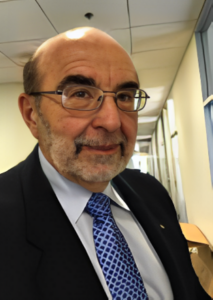The applications of physiologically-based pharmacokinetic (PBPK) absorption modeling and simulation (M&S) have been expanding in recent years for both new drug and generic drug development. For example, PBPK absorption M&S has been used to evaluate alcohol dose dumping (ADD) risks for bioequivalence (BE), to support BE study justifications (e.g., using single sex versus both sexes in BE study), to evaluate the impact on BE of a formulation excipient in a test product, to predict the systemic and local bioavailability (BA) of locally-acting products to support BE assessments, and to assess the relative BA and BE of pediatric drug products. In fact, the regulatory utility of PBPK modeling to support scientific rationales, guide in vitro and in vivo study designs, and further inform pharmacological effects of drugs is specifically discussed in recent FDA Guidances for Industry (e.g., for assessing the impact of food on drug exposure, and for evaluating gastric pH-dependent drug interactions with acid-reducing agents) as well as in the draft ICH M13A Guideline on BE for immediate-release solid oral dosage forms. To facilitate the utility of modeling and simulation in such contexts, it is imperative to discuss recent scientific advances and to address practical challenges for the implementation of PBPK absorption modeling and virtual BE analysis.
The purpose of this workshop is to discuss the challenges, experiences, and advances for the development of PBPK absorption modeling to support the establishment of bio-predictive in vitro testing (e.g., dissolution) and to address risks associated with the extrapolation of BE in various contexts, such as from a fasting to a fed state, from subjects with normal to elevated gastric pH, for a biopharmaceutics classification system (BCS)-based biowaiver, assessing BE in pediatrics and with other risk-based BE assessments for oral products. This workshop will include live presentations and interactive panel discussions for all attendees (including virtual attendees), as well as additional workshop activities for in-person attendees, including round table discussions with deliberations among industry, academic and regulatory experts on a selection of the most important topics and key issues that will influence best practices in this field.
Workshop Topics
- Advances of PBPK Modeling in Regulatory Contexts and to Support Harmonization
- PBPK Modeling to Evaluate Food Impact on Bioequivalence Supporting ICH M13A
- PBPK Modeling to Support BA and BE Assessments in Pediatric Populations
FDA and the Center for Research on Complex Generics (which is a collaboration between the University of Maryland School of Pharmacy and the University of Michigan College of Pharmacy) are dedicated to advancing programs that stimulate scientific dialogue, disseminate current insights about complex generics, and generate new knowledge in support of FDA’s mission to promote and protect the public health by increasing access to safe and effective generic medicines.
Audience
This workshop is primarily developed for the new and generic drug industries and other involved collaborators, including consultants and contract research organizations whose work supports new and generic drug applications.










































